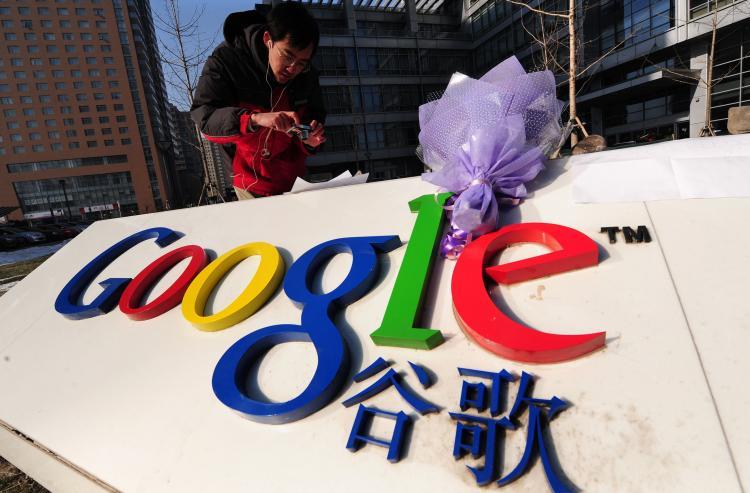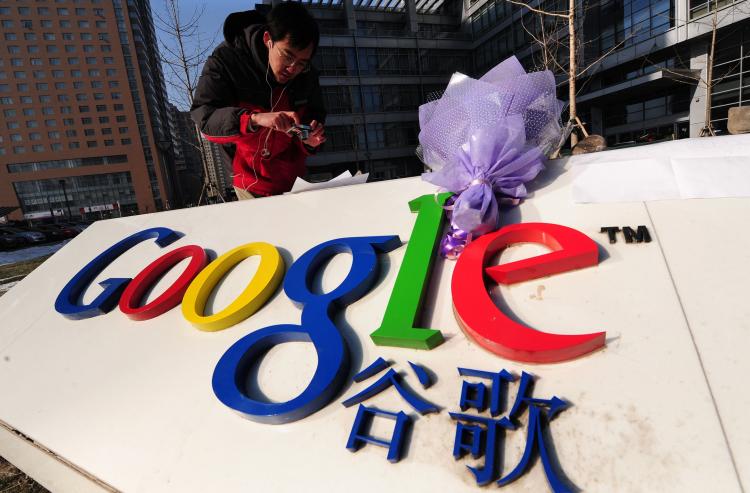Though the few hours of unblocked access to the free world were exciting, people are not optimistic about the Chinese authorities’ willingness to relax Internet control. The truth is, the regime has been escalating its all-out war against Internet freedom.
A Chinese blogger Huang Jian divided the regime’s Internet war into four phases. Phase one was when few Chinese had access to the Internet and only a few websites were blocked, including Wikipedia, YouTube and democracy activists’ websites. In phase two the regime aimed to silence all “unharmonious” voices within the country by requiring web users to register using their real names as well as enforcing the implementation of a filtering software called Green Dam on every personal computer. The third phase blocks social networks such as Facebook and Twitter. The fourth phase, Huang said, will be a complete shutdown of Internet and cell phone services, similar to what the regime did in Xinjiang Province after the July 2009 mass protests.
The regime seems to have pushed its war on the Internet well into the third phase. According to Chinese official media, a campaign in the beginning of 2009 shut down 1,507 “illegal” websites, and banned websites including the Chinese BBC website, Radio France Internationale and the New York Times. An additional 114 blogger’s sites were closed during the Chinese New Year week.
From the regime’s handling of the Xinjiang riot, we have a glimpse of the fourth phase of the war. Starting from July 5, 2009, following the bloody crackdown of the Uyghur protest, the authorities almost completely shut down all communication channels in the capital city Urumqi, leaving the region cut off from the rest of the world for six months. It was not until December that Xinjiang web users were allowed limited access to some government Web sites such as the state-run Xinhua. The government said access to other websites, Internet services, text messaging services and international phone service will be restored gradually, depending on the situation.
The same measures were taken in June 2009 in southern China’s Shishou City of Hubei Province when 70,000 people took to the streets to protest the mysterious death of a young cook at a local hotel. The city was deprived of Internet access, and some areas even experienced power outages. Observers of China’s Internet control generally agree that China’s Internet freedom has been deteriorating in recent years. Last July, China’s web users were required to register using their real identities in order to be approved the right to post comments on news websites. In September, China’s major websites including Sina, Netease and Sohu also started to require new users to register with their real names, ID number, and address. A spokesperson said the purpose of such requirements is to reduce “irresponsible” comments.
Forced Implementation of Monitoring Software
In September the Ministry of Industry and Information forced all network providers to install a new monitoring tool, “Blue Dam,” in an effort to strengthen their control over public opinion before the regime’s 60th anniversary on Oct. 1.
The move came two months after the announced installation of the “Green Dam” software was postponed due to intense protests inside China and international attention from overseas media. The Ministry had forced all network providers to install Blue Dam on their servers, and notified individuals to install Green Dam software on their PCs.
Authorities then started scanning and investigating network providers under the guise of policing “illegal” information on the Internet; official announcements said those who had not installed Blue Dam would be punished.
Obama’s Interview Brings Repercussions
While many web users look for ways to bypass the Internet blockade, some offline media, traditionally mouthpieces of the government, have been voicing discontent over the tightened control. In November 2009, President Obama invited Southern Weekend, a Guangzhou-based newspaper known for its relatively independent-minded reports and editorials that challenge censorship, for an exclusive interview. The newspaper was allowed to publish only a fraction of the interview, but left a large blank space on the same page which many see as a protest against censorship. The newspaper’s chief editor was later demoted, and many of its staff resigned.
Li Dongsheng, former Deputy Minister of the Central Propaganda Department, was recently assigned Party leader of the Bureau of Public Security according to a report by China News Service on Oct. 28. Some analysts say this is a sign of the authorities’ determination to enforce censorship even more rigidly.
In a recent report, the Washington Post quoted Jonathan Zittrain, founder of Harvard Law School’s Berkman Center for Internet and Society as saying “The (Chinese) government isn’t showing any signs of giving up on censorship. If anything, they’re innovating and exploring other avenues.”
Read the original Chinese article



Friends Read Free